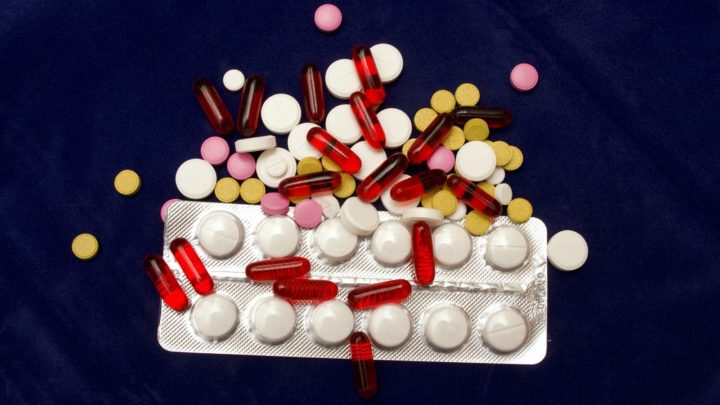TGA calls for safer painkiller disposal after 150 daily hospitalisations

While opioids such as codeine and oxycodone may be prescribed to help people manage their pain or recover from surgery, they can also cause addiction, lead to dependence and result in accidental overdoses, hospitalisation and even death.
When used correctly, the meds can help people in their recovery process – but they can also have dangerous interactions with other medicines and lead to deadly problems if they’re accidentally consumed by children or pets.
Now the Therapeutic Goods Administration (TGA) is reminding Australians that the opioids shouldn’t be saved for a rainy day ‘just in case’ and should always be disposed of correctly when people are finished with a script.
Close to 150 Australians are hospitalised each day due to opioid harm. According to a recent report by the Australian Institute of Health and Welfare, 14 emergency department presentations involve opioid harm and three people die from drug-induced deaths involving opioid use each day.
Meanwhile, oxycodone, codeine and morphine were mentioned in 49 per cent of opioid deaths in 2016.
The TGA says this number is too high and that it could be lowered if people were safely disposing unwanted medication.
Read more: Expert reveals how safe it is to use expired medication
“Storage of expired and unwanted medicines in the home can be dangerous, and unsafe disposal of unwanted medicines can lead to environmental harm,” the TGA said. “Don’t keep unused strong pain relievers ‘just in case’ as this can lead to inappropriate use.”
While it’s easy to throw unwanted meds in the bin, flush them down the toilet or dump them down the sink, this isn’t advised as it can impact the environment and waterways. There’s also a risk that they may be found by someone they’re not intended for, which can cause them serious health issues.
Instead, all unwanted medication — including opioids — can be returned to any local pharmacy for free. While most medicines including prescription drugs, over-the-counter drugs, herbal or complementary supplements, gels, liquids, creams and pet medicines can be placed directly in the disposal bin provided by the Return Unwanted Medicines (RUM) Project at the chemist, strong painkillers and opioids need to be separately stored or processed by the pharmacist.
As such, always talk about the medication you’re returning with the pharmacist. Always read the labels of medications, check the expiry dates and consider whether you actually need them in the home. All unwanted medication can be placed in a bag or container for safe disposal at the pharmacy.
Read more: How to safely dispose of unwanted medication
The latest advice follows the results of a recent study which found 704 tonnes of unwanted medicines were collected by RUM in 2016. Unexpired opened packets paracetamol, salbutamol and glyceryl trinitrate – which are commonly used to treat acute health conditions – were the most commonly returned medicines.








 Proudly Australian owned and operated
Proudly Australian owned and operated